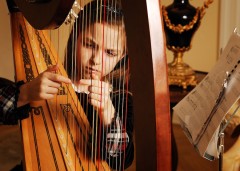
How to start online Aural Test Training – a guide for teachers, parents and students
Aural skills are essential to anyone learning to play an instrument or sing. Teachers love E-MusicMaestro Aural Test Training because it teaches as well as tests and gets their students better exam marks. Designed to be used online, it's problem-free, stress-free and subscribers can choose the ABRSM or the Trinity programme. more










